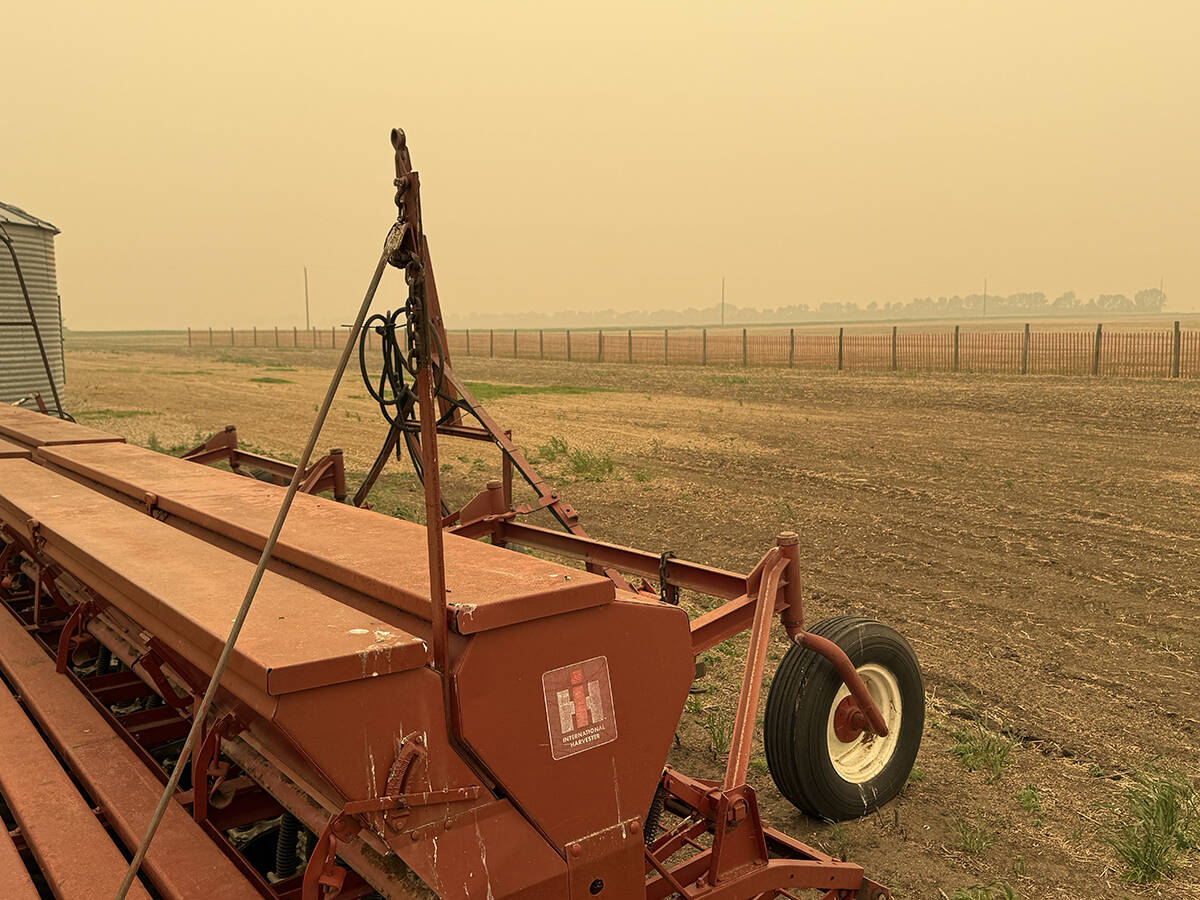EDMONTON – Alberta beef producers may not believe there is a need to test all animals for BSE, but they could no longer ignore the calls from farmers across the country to at least see if testing would help open up much-needed markets.
More than 150 producers at the Alberta Beef Producers’ semi-annual meeting voted to investigate the pros and cons of voluntary BSE testing.
ABP chair Arno Doerksen said the resolution doesn’t call for the testing of all animals, but rather an investigation of the literature about the testing.
Read Also

Wildfires have unexpected upside this year
One farmer feels smoke from nearby wildfires shrouded the July skies and protected his crop from the sun’s burning rays, resulting in more seeds per pod and more pods per plant.
“All we’re saying is take a long-term look at testing for a particular market,” Doerksen said.
Kee Jim of Okotoks, Alta., who introduced the motion, said the fact that there is controversy about testing shows a need for more information.
“What I don’t like is a debate made with uninformed information.”
Jim said he isn’t suggesting 100 percent testing, but a review of the scientific literature could lead Canada to explore new export markets that require testing.
Larry Sears, with the Canadian Beef Export Federation, warned producers that 100 percent testing for BSE would not solve their problems.
“Suggestions by diversifying into the European Union or by testing 100 percent of our slaughter we would gain access to Japanese markets and solve all our surplus problems is a bit na•ve,” said Sears.
Japan initially indicated it wanted 100 percent testing, but has since backed off that position, he said.
“The Japanese consumer and our customers are not calling for complete testing. It’s only the regulators trying to re-establish credibility on our shoulders,” said Sears.
Before BSE, Canada sold about 24,000 tonnes of only certain cuts of beef into Japan.
Alberta agriculture minister Shirley McClellan also warned the industry not to give producers the impression that testing would solve Canada’s market problems.
“Our issue today is capacity, it is not a home for beef. Our packers are shipping every kilogram of beef they can process out of this country. If we could process more we could sell more, but we can’t.”
Alberta can test about 1,000 animals a week for BSE now. Alberta plants kill about 6,000 head each week.
“Do I have to do the math? It isn’t helpful to give the impression out there that you could do this on a large scale,” said McClellan.
“A lot of you people are cow-calf producers. Who do you think is going to pay the $100-$150 a head? Well, when did anything ever happen that you didn’t pay for,” she warned.
“Right now the government does pay for testing. But if you think I can go and say, ‘I want another $100 million or $150 million to test every animalÊ- totally unnecessary, but I want it anyway,’ when we’ve got people waiting for schools and hospitals and roads, I don’t think I have a big chance.”














